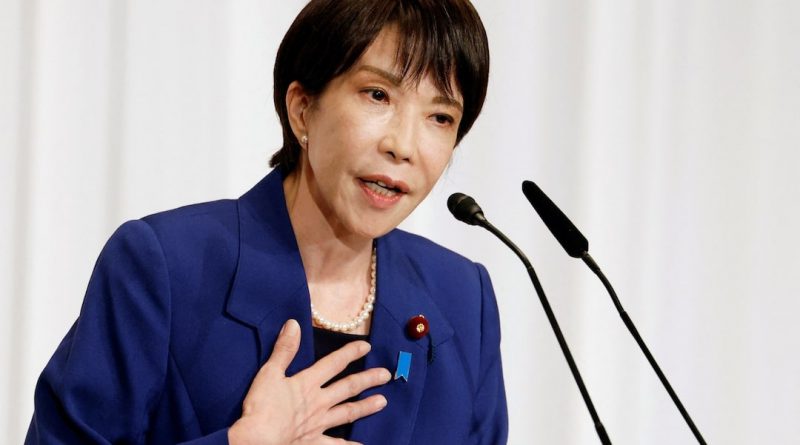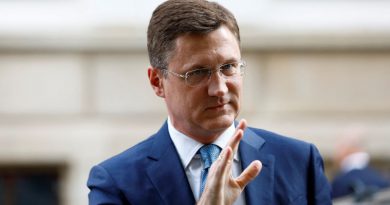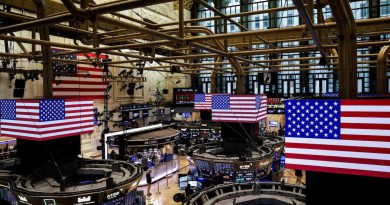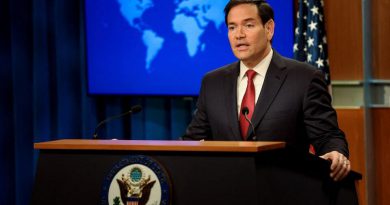Japan PM And Trump Hold First Talks Amid Tensions Over Taiwan Issue
Tokyo – Japan’s Prime Minister Sanae Takaichi and U.S. President Donald Trump held their first phone conversation since a diplomatic rift emerged between Japan and China over comments related to Taiwan.
The exchange was seen as an important step in reassuring Tokyo of continued U.S. support during a moment of heightened regional tension.
Takaichi had earlier remarked in parliament that a potential Chinese attack on Taiwan could prompt Japanese military action.
Her comment triggered a strong reaction from Beijing, including a suspension of group travel to Japan and sharp diplomatic criticism.
Taiwan sits just over 100 kilometres from Japanese territory, and its security situation directly influences Japan’s strategic environment.
China continues to claim Taiwan as its own, while the island’s government rejects this position and insists its future must be determined only by its own people.
Trump has not publicly addressed the diplomatic dispute, leading some analysts in Japan to express concern about Washington’s position.
However, following the call, Takaichi stressed that the U.S. president assured her of a close working relationship and encouraged her to reach him anytime.
She said Trump initiated the call and briefed her on the status of U.S.-China relations, including his recent discussion with Chinese President Xi Jinping.
According to Takaichi, Trump highlighted ongoing dialogue with Beijing and reaffirmed strong bilateral ties between Washington and Tokyo.
Meanwhile, Xi conveyed to Trump that Taiwan’s “return” is central to China’s long-term vision, according to official reports from Beijing.
Trump later noted progress in trade discussions with China but did not publicly mention any Taiwan-related issues.
Japanese officials were relieved that Trump contacted Takaichi shortly after his call with Xi.
Government sources described the timing as significant, reflecting Japan’s continued priority in U.S. foreign policy considerations.
Taiwan’s Premier Cho Jung-tai reiterated that returning to China is not an option for the island’s 23 million residents.
Japan’s Chief Cabinet Secretary Minoru Kihara also emphasised that stable U.S.-China relations are vital for the wider international community, including Japan.
Japan continues to strengthen its defence capabilities as regional competition intensifies.
Encouraged by the U.S., Tokyo has expanded military spending and positioned new defence units closer to Taiwan.
China criticised Japan’s plans to deploy a medium-range missile unit to Yonaguni, the island nearest Taiwan.
Beijing described the move as an attempt to escalate tension and provoke confrontation in the region.
Japan recently scrambled a fighter jet after detecting a Chinese drone flying near its southwestern islands.
These incidents underline the increasingly complex security dynamics Tokyo is navigating.
While Takaichi has refused to retract her remarks on Taiwan, Japan insists it is open to dialogue with China at all levels.
Diplomatic meetings have continued, including talks between Japan’s vice foreign minister and China’s ambassador in Tokyo.
However, China declined the possibility of a meeting between Takaichi and Premier Li Qiang during the recent G20 summit.
Analysts believe this signals a difficult period ahead for Japan-China relations under Takaichi’s leadership.
Some Japanese officials also remain cautious about Trump’s long-term stance on Taiwan.
Analysts note that the U.S. administration could prioritise trade negotiations with China in ways that may affect regional security calculations.
A senior professor of U.S. politics in Japan wrote that understanding these risks is essential for shaping Japan’s approach to China.
Tokyo’s foreign minister stated that the government is not worried about Trump’s silence, noting the U.S. does not comment on every issue publicly.
Japan continues to balance diplomacy, defence, and regional partnerships as it faces one of the most sensitive geopolitical challenges in East Asia.
The recent call between Takaichi and Trump aims to reassure Japanese policymakers as tensions with Beijing remain unresolved.



